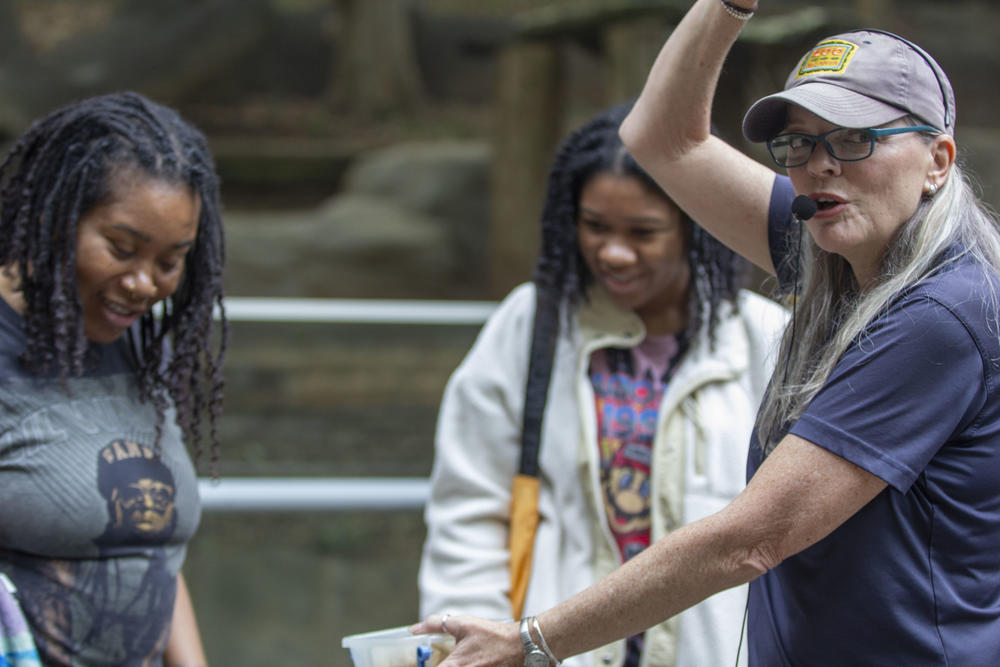
Caption
Zoo Atlanta interpreter Dana Grantham shows guests a sample of panda fur, taken during an ultrasound, on Sept. 30, 2024.
Credit: Allexa Ceballos/GPB News
|Updated: October 8, 2024 11:22 AM
LISTEN: The four remaining giant pandas at Zoo Atlanta will be returned to the Chengdu Research Base with the end of a loan program from China to Atlanta. GPB's Sofi Gratas has more in this feature.

Zoo Atlanta interpreter Dana Grantham shows guests a sample of panda fur, taken during an ultrasound, on Sept. 30, 2024.
Early on a Monday morning, Zoo Atlanta interpreter Dana Grantham collected a group near the flamingos at the zoo’s entrance.
It was one of the final chances visitors have to sidestep the crowds as part of the Giant Panda Mornings program leading up to the pandas' departure.
“This is a cool time to come to the zoo and see what we call the morning routines,” Grantham tells the group as, in the background, lions roar.
Zoo Atlanta got its first pandas in 1999, named Lun Lun and Yang Yang. They came on loan from the Chengdu Research Base in China, which is home to the pandas' only natural habitat.
The research base is focused on species conservation through breeding.
That breeding’s been largely successful in Atlanta. Lun Lun and Yang Yang bred seven cubs, including two sets of twins, while at the zoo.
Since even pandas born abroad are considered Chinese property, most are already back at Chengdu.
“To put it in layman's terms, the giant panda is to China what the bald eagle is to us here in the United States of America,” Zoo interpreter Phillip Neumeier tells the group. “It's a national treasure.”
Twins Ya Lun and Xi Lun were set to return on a similar timeline as their siblings, but that was interrupted by the COVID-19 pandemic.
They’ll join their mom and dad, who have been retired from breeding, for the overseas trip this month.
“[It is] probably a once-in-a-lifetime kind of opportunity because they're leaving so soon,” said visitor Erin Adams.
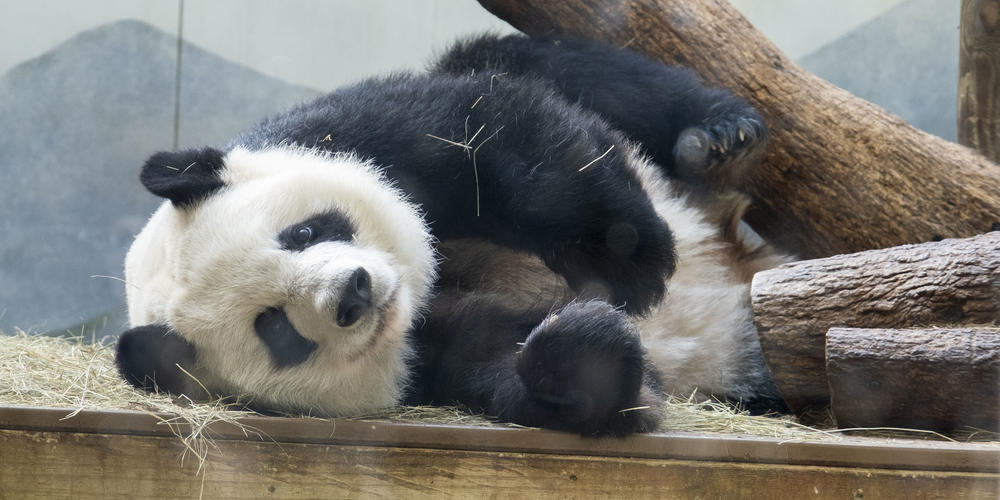
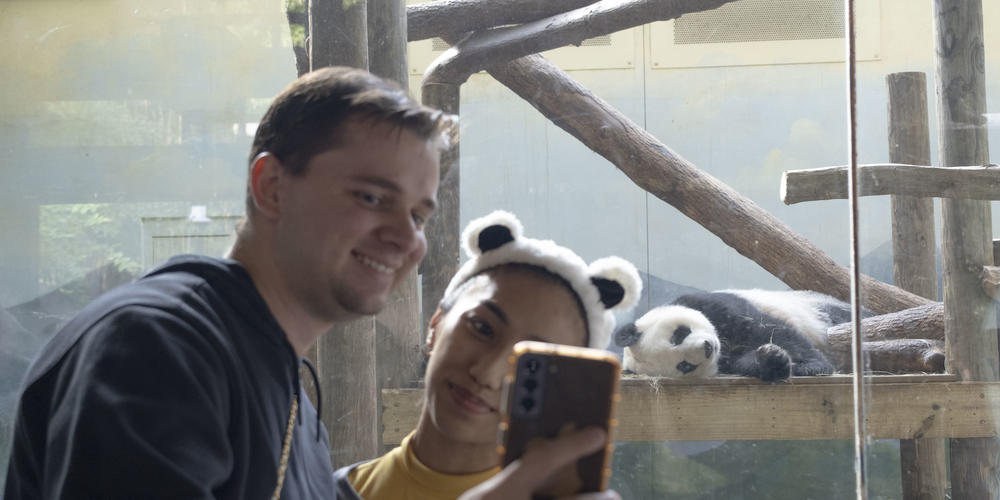
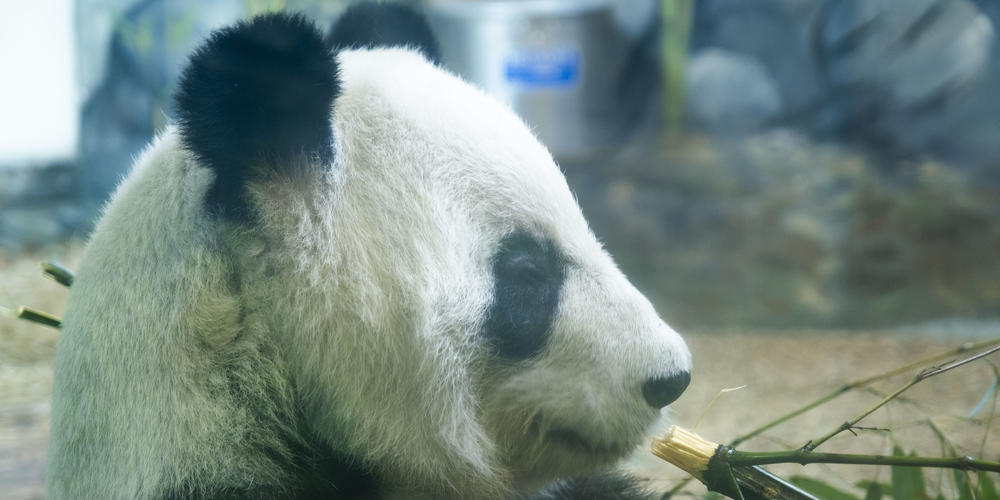
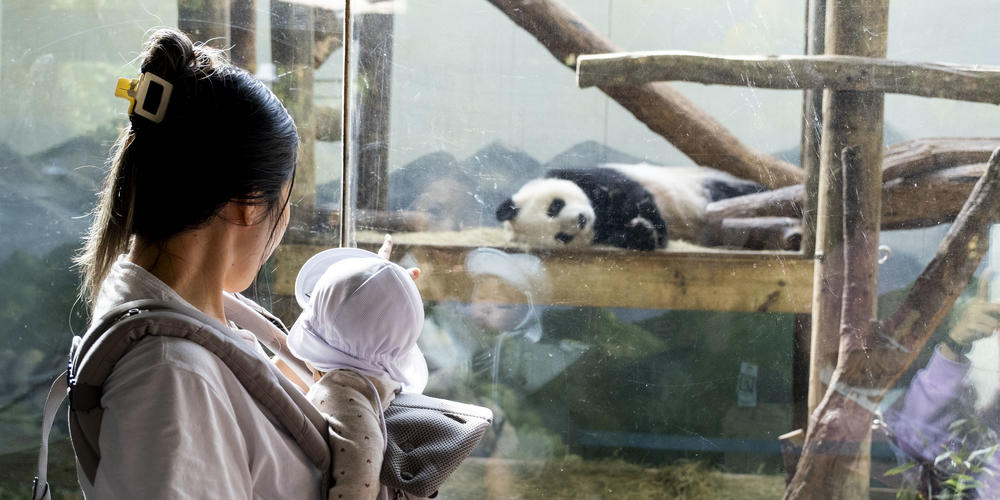
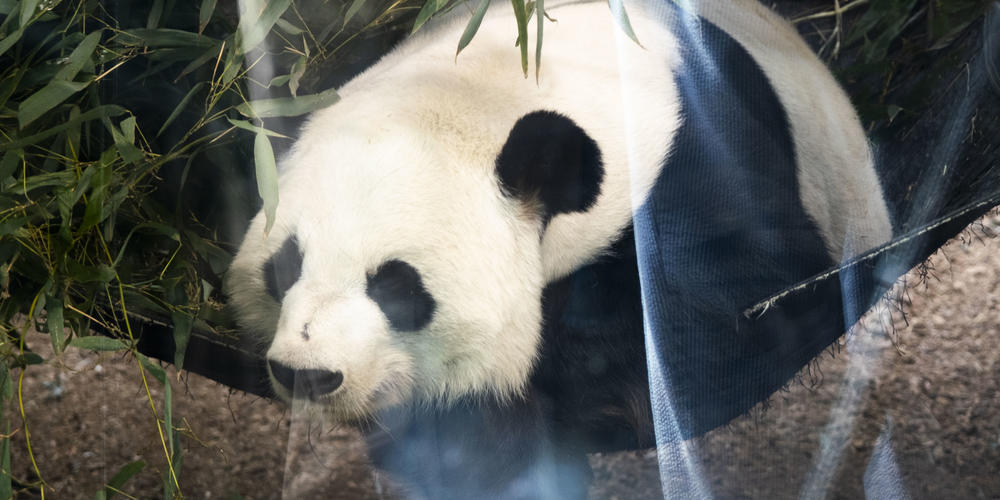
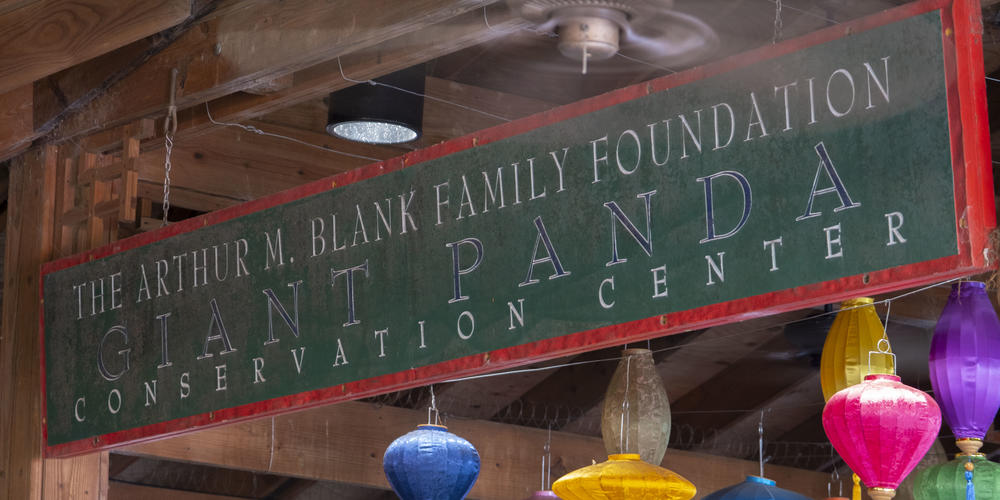
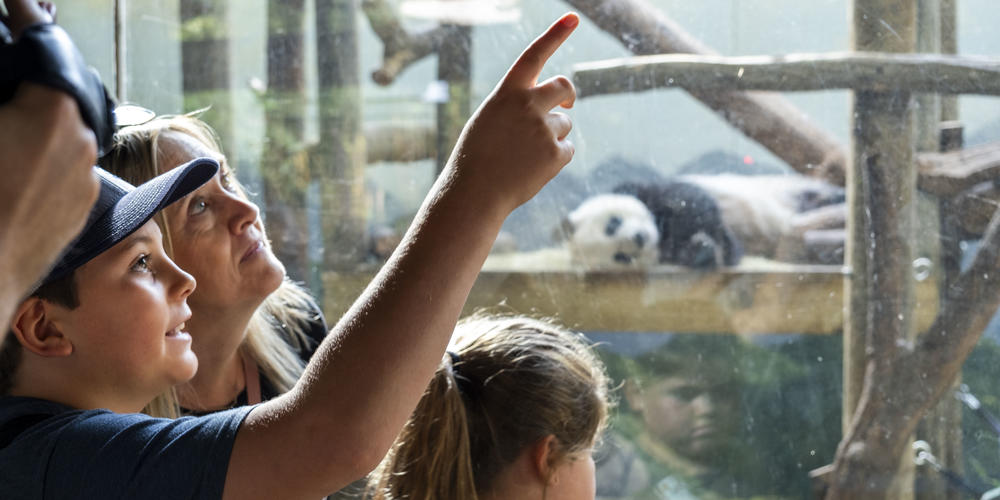
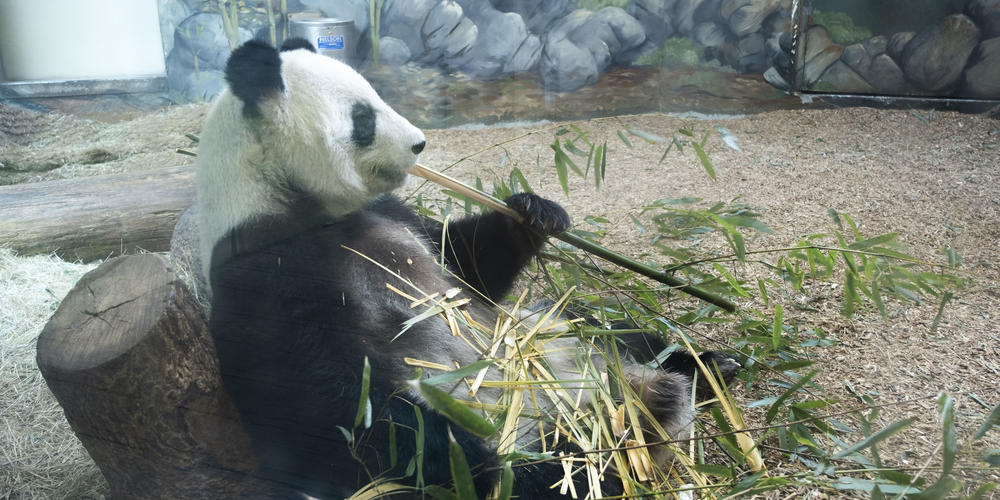

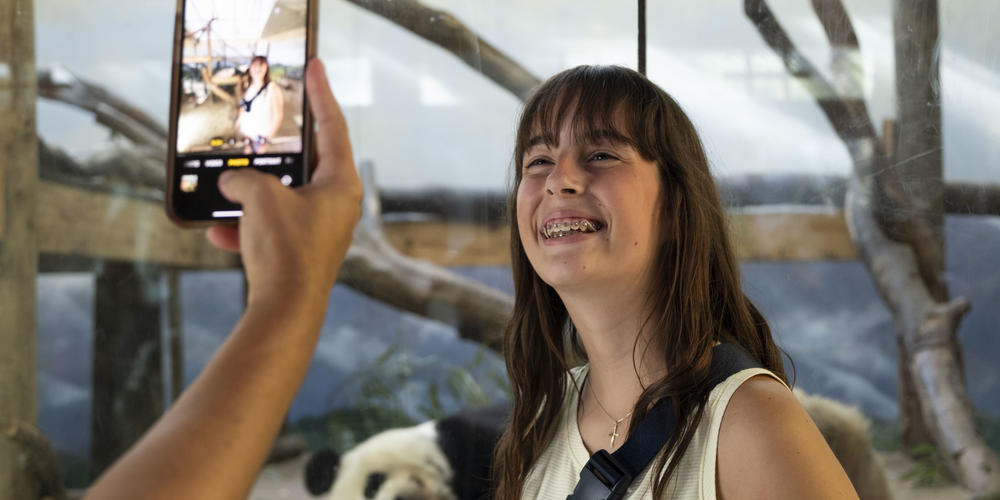


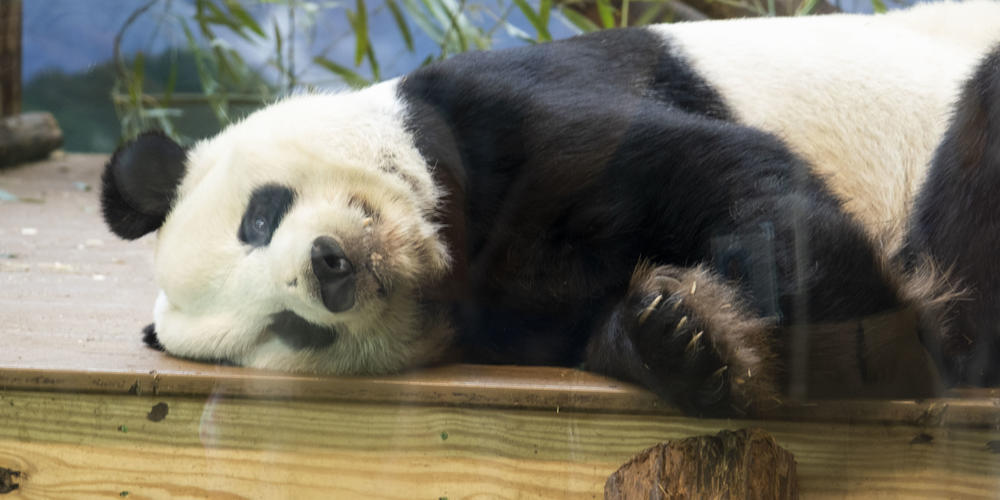
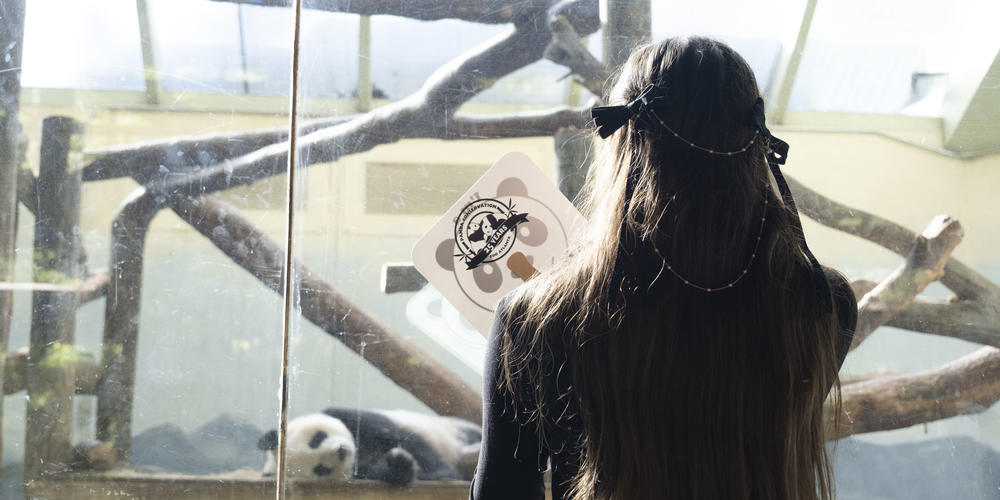
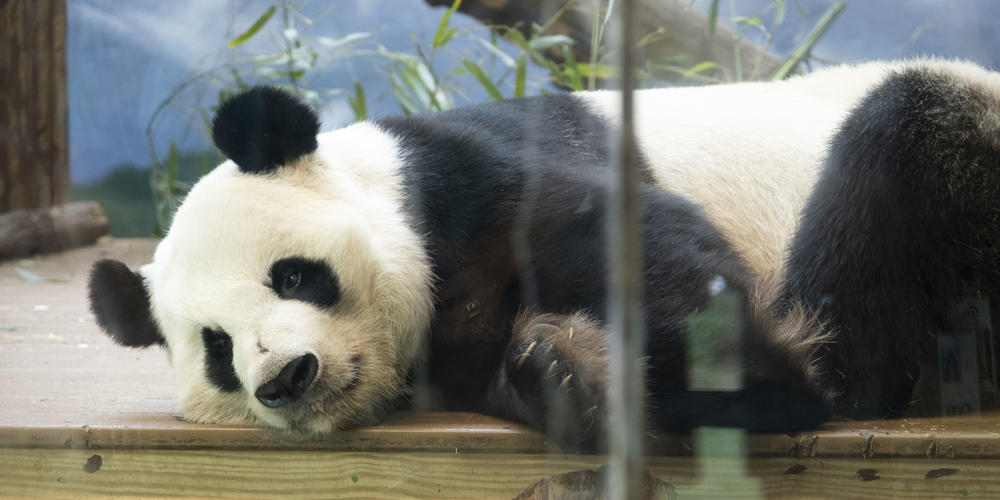
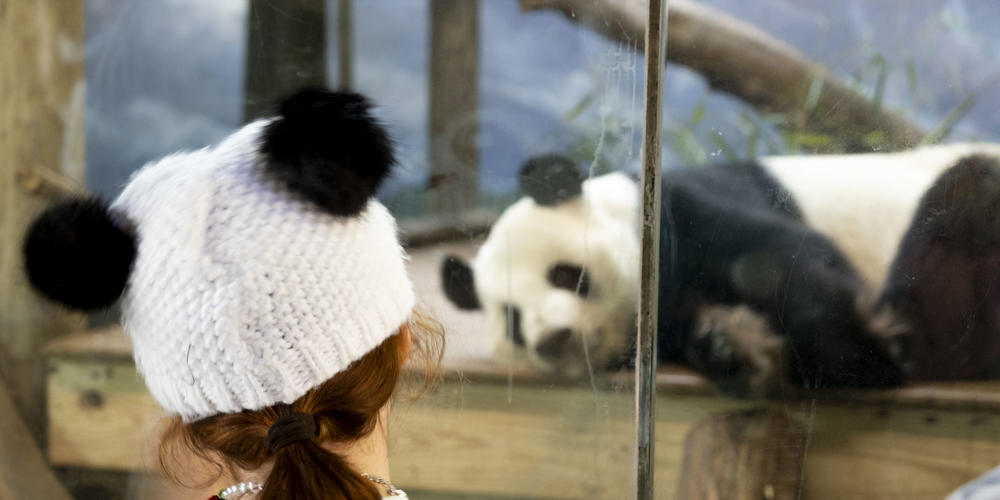

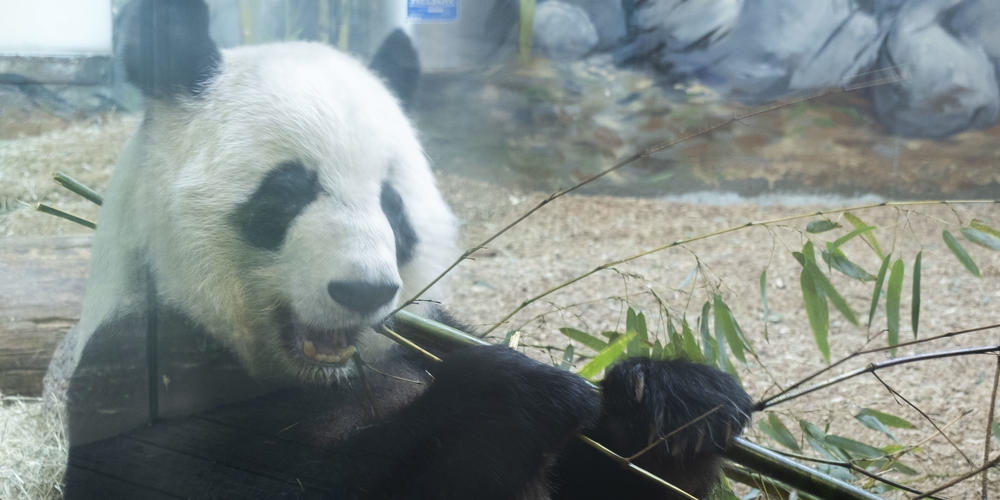






















At one point, Zoo Atlanta was the only zoo in the United States with pandas following China’s decision to not renew loans to zoos in Washington, D.C., San Diego and Memphis. The partnership in California, and to the nation’s capital, have since been reignited.
Adams, a teacher from Kennsaw, said she doesn’t remember taking notice of the pandas during previous visits. Yet, she and husband, Chris, are decked out on this morning in homemade T-shirts — black acrylic paint on white, made to look like a Giant panda face.
The panda habitat, nestled in a corner of the zoo, is quiet. Signage lining the entrance takes visitors through a decades-long story of panda diplomacy, research and conservation efforts.
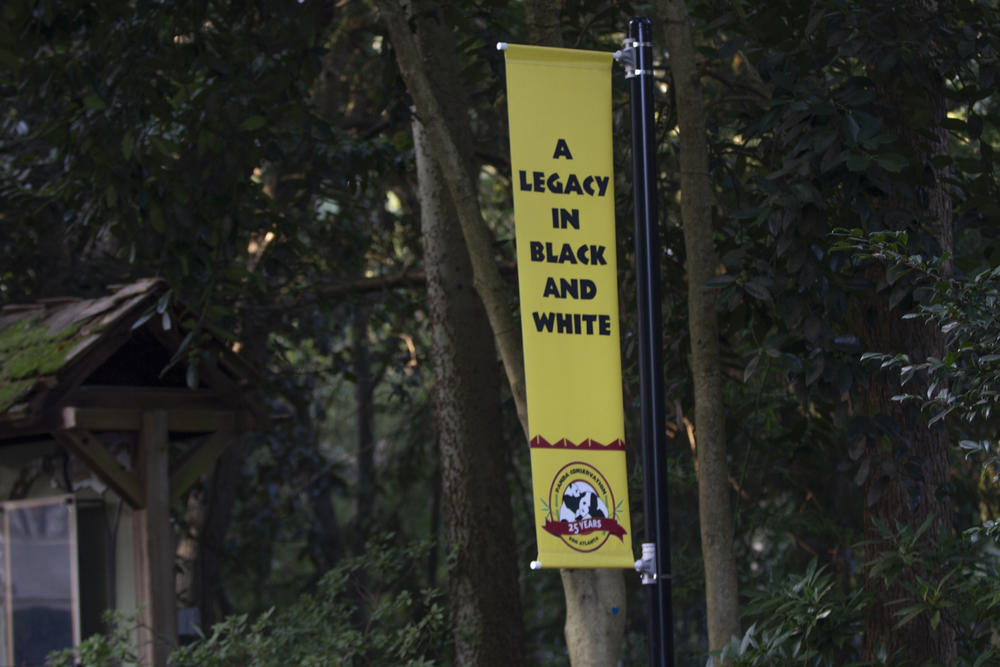
A sign at Zoo Atlanta recognizes 25 years of the Giant panda program.
Atlanta’s unusually warm October weather doesn’t suit the pandas, so guests file into the indoor enclosure. One of the twins Ya Lun tumbles around and presses her face against the glass.
For most of their lives, pandas are solitary.
“They're only together to raise cubs or for breeding. They see each other behind the scenes and growl,” Grantham said.
But Grantham admitted they all have different personalities.
“I'm just going to say it. Yang Yang is my favorite animal in the whole universe,” she said. “As far as being an ambassador for wild pandas, he's not really much of a wild panda. But as a person, like as a personality, he is playful, fun, engaging, amazing, just funny.”
At 27 years old, Yang Yang and Lun Lun are in their golden years. Pandas normally live up to 30 years old in captivity.
Eddie Wiley watched as Lun Lun got comfortable, as though sitting in a recliner, meticulously picking off strands from a stick of bamboo.

27-year-old Lun Lun at Zoo Atlanta on September 30, 2024.
“Behind the glass, I think they're the funniest creatures in the world,” Wiley said.
Meanwhile, 8-year-old panda Ya Lun kind of smiles at the group, tumbling around her enclosure.
“It’s just kind of like a feeling of awe when you look at them,” said Holly Burdette.
Burdette, whose family visits zoos across the country, remembers the public appearance of the first set of twins, born over a decade ago.
“I wanted my son to be able to see the pandas and to spend time with them,” she said holding the son, Nico. “And even if he doesn't remember, he'll at least have the pictures.”
For years, these pandas have been ambassadors for their species. Along with millions of visitors have come tens of millions of dollars, for conservation and research, helping move the giant panda from endangered to vulnerable.
That’s the legacy that Grantham will keep sharing, even when the pandas are gone.
“The thing I'm most frequently saying these days at the zoo is how proud I am of what we've done,” Grantham said. “Like, although I'm going to miss them, we've done amazing work. And this was always the plan.”
It’s too early to know what animal may get brought to Zoo Atlanta next. Grantham hopes whatever it is gets the same amount of attention — and a chance at a similar success story.